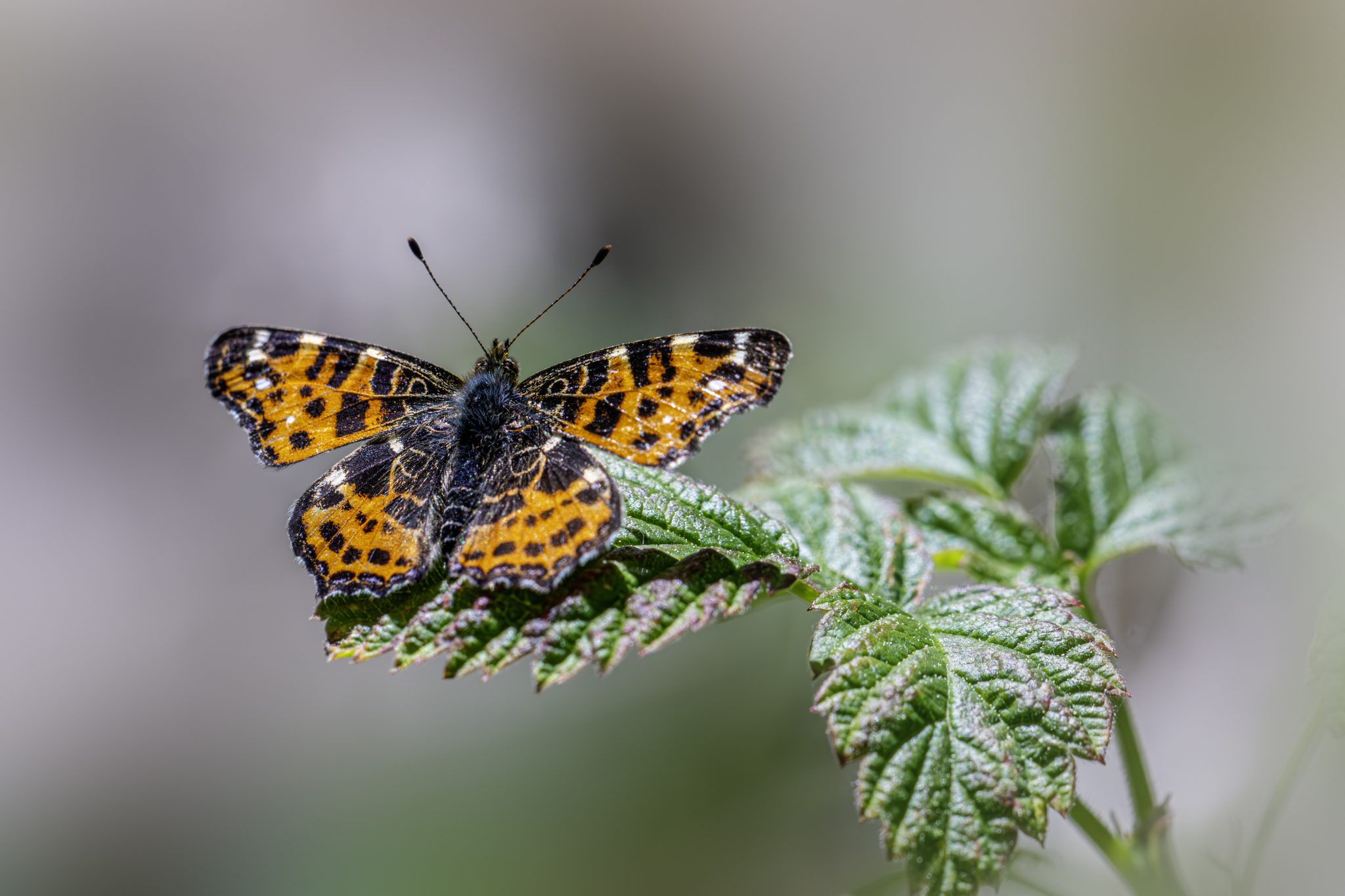🦋 Map Butterfly (Araschnia levana)
The Map Butterfly, scientifically known as Araschnia levana, is a fascinating species native to Europe and parts of Asia, well known for its striking seasonal dimorphism—it has two generations per year that look entirely different, resembling two separate species!
🔍 Identification
🧬 Seasonal Forms:
- Spring form (f. levana):
- Color: Orange-brown with black spots and markings
- Pattern: Resembles a small fritillary butterfly
- Summer form (f. prorsa):
- Color: Mostly black with white bands across the wings
- Appearance: Mimics a white-banded moth or the white admiral
- Wingspan: 35–40 mm
- Underside of hindwings: Map-like pattern of fine white lines on a brown background, giving the butterfly its name
🌍 Distribution & Habitat
- Range: Found throughout central and eastern Europe, into parts of Russia and Asia
- Habitat:
- Woodland edges
- Meadows
- Forest clearings
- Hedgerows and gardens with nettles
🐛 Life Cycle
- Generations: Bivoltine (two broods per year)
- Spring generation (March–May): orange-brown form
- Summer generation (June–August): black-and-white form
- Eggs: Laid in clusters on the underside of stinging nettles (Urtica dioica)
- Caterpillars: Spiny and black with orange markings
- Pupation: Chrysalis attaches to stems or leaves
🍽️ Diet
- Caterpillar host plant: Stinging nettle (Urtica dioica)
- Adult nectar sources: Feeds on a variety of flowers, tree sap, and sometimes dung or carrion
🌟 Interesting Facts
- The map-like pattern on the underside of the hindwings gives the species its name
- One of the best-known examples of seasonal polyphenism—a change in appearance depending on the time of year
- The change between spring and summer forms is triggered by day length and temperature during larval development
✅ Conservation Status
- IUCN Red List: Not currently assessed globally, but considered common and stable in much of its range
📌 Summary
The Map Butterfly (Araschnia levana) is a small yet remarkable butterfly whose two seasonal forms showcase nature’s adaptability and elegance. With its map-like wing patterns and fascinating life cycle, it’s a favorite among butterfly watchers and a vivid example of how environment shapes biology.
Visited 8 times, 8 visit(s) today
Views: 62
Subscribe to the newsletter:
